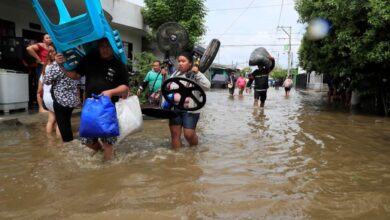The Paradox of Peace that Gustavo Petro Faces: the Tension at the Door of the Agreements
Gustavo Petro's total peace is slowly unraveling as armed groups attack. This is the paradox of peace.

Photo: TW-petrogustavo
LatinAmerican Post | July Vanesa López Romero
Escucha este artículo
Leer en español: La paradoja de la paz que afronta Gustavo Petro: la tensión a puerta de los acuerdos
The election of Gustavo Petro as Colombia's first left-wing president gave the short but hopeful feeling that the peace accords he promised with his policy of total peace would bear fruit sooner rather than later. However, today, more than 8 months after his presidential term began, and after many ups and downs in the agreement process, total peace seems to be headed for its decline. Or, at least, that seems to be in the midst of an indefinite stoppage of the ceasefire by the ELN and the Clan del Golfo. It is a paradox that, at the gates of the start or progress of the dialogues, these armed groups resume the attacks, but it has an explanation.
The Strategy that Failed Total Peace
Since his presidential campaign began, Gustavo Petro has focused on nurturing his discourse on social justice for the communities most affected by violence. This is how total peace was born, the main flag of the current government and which was presented as a humanitarian effort to protect territorial communities. This consists of two stages: the first was intended to put an immediate stop to the war between armed groups and the State, in other words, a ceasefire. The purpose of the first stage was to give smooth passage to the negotiations, which would comprise the second stage. In other words, the ceasefire would protect the affected communities while the negotiations progressed.
Also read: Opinion: Will the Latin American Political Pendulum Swing Back to the Right?
However, since December of last year, attacks by the ELN began to be reported, which continue to occur today. Likewise, two weeks ago the Clan del Golfo, the second most important armed group in the country, announced the withdrawal of the ceasefire. At the same time, the FARC dissidents, who are also in a ceasefire period, are pushing this pre-agreement to the limit. It is expected that in the coming weeks they will also withdraw from it.
In this sense, the bilateral ceasefire between the government and the armed groups is no longer on the table. That is, the first stage of total peace has failed, at least temporarily. To this we must add the regional response, one that leaves the government's hands tied in terms of political support, a factor that is very valuable in this process. There are around 20 governors who have spoken out against the events of recent weeks from a speech led by the right, current opposition to the Petro government. This discourse is based on the military policy of “freedom and order”, one that demands that there be a military response, which would imply that the government also renounces the ceasefire. This not only adds further tension to the situation, but also puts the government in a position of weakness vis-à-vis the country.
What Is Behind the Paradox of Peace?
The first thing to clarify is that the attacks by armed groups are not being, for the most part, against the State, but are being between the armed groups. However, both the civilian community and the military sector have already been affected by this war between armed groups. The most recent examples are the nine Colombian army soldiers who were killed by ELN bombings in the Catatumbo region and the attack, also with explosives, on the Caño Limón-Coveñas oil pipeline in Boyacá. The latter caused an environmental emergency in the area and puts the inhabitants at risk. We have already seen the same patterns in previous peace agreements, such as the one with the FARC, in which, previously, kidnappings and terrorist attacks have increased.
It is important to highlight that this war is based on the control of territories where coca crops abound. The ELN, the Clan del Golfo and other armed groups are looking to get hold of the largest amount of illicit crops to finance the war. The implications of this are territorial controls where the State has no voice or vote, so there would be no presence of the State in the midst of the conflict. This is happening in the midst of a deep crisis in the coca market in the country, a crisis that also contrasts with the boom in the rest of the world, according to the UN.
This makes sense of the sudden decline in total peace and explains the reason behind the failures of its strategy. That strategy did not take into account the consequences of initiating a peace agreement with an immediate ceasefire and did not anticipate the attacks previous ones that tend to increase at the doors of the agreements. Likewise, it once again reveals two constants in the Petro government: a lack of direction and communication problems with the armed groups. Let us remember that the reason for the ELN waiving the ceasefire last December was because the president declared agreements that he had not reached with the armed group.
Faced with this, the Government must take into account all the factors that the peace agreements are going through and the current situation to create a strategy that protects the communities, but also guarantees that total peace will not only remain in words and will not fail.





